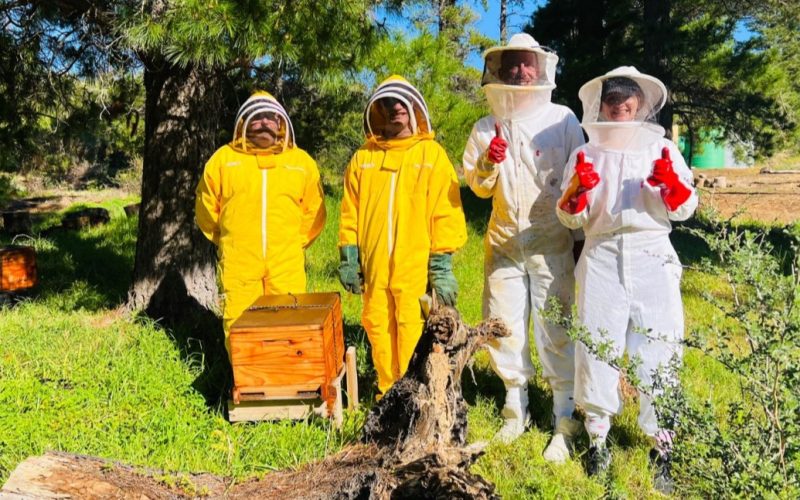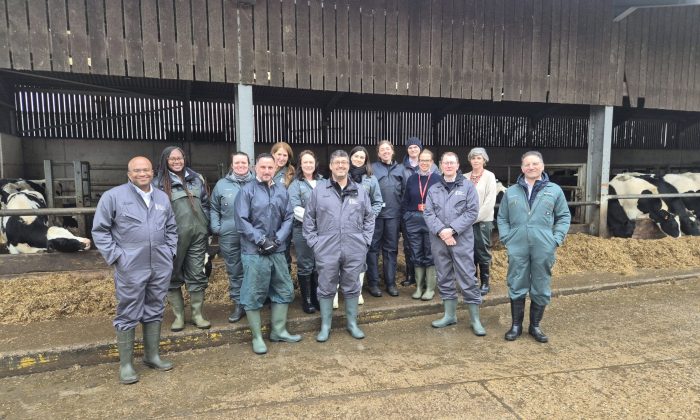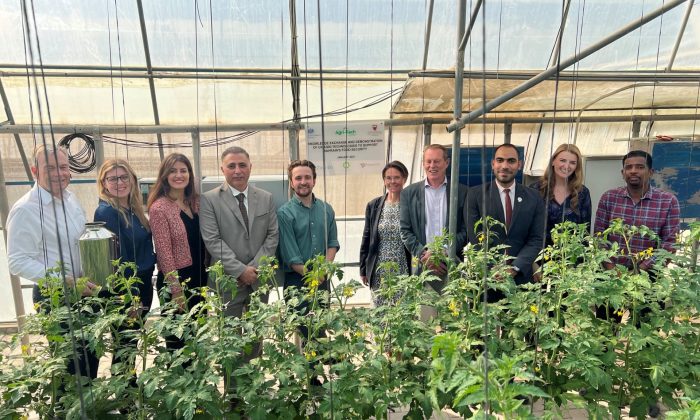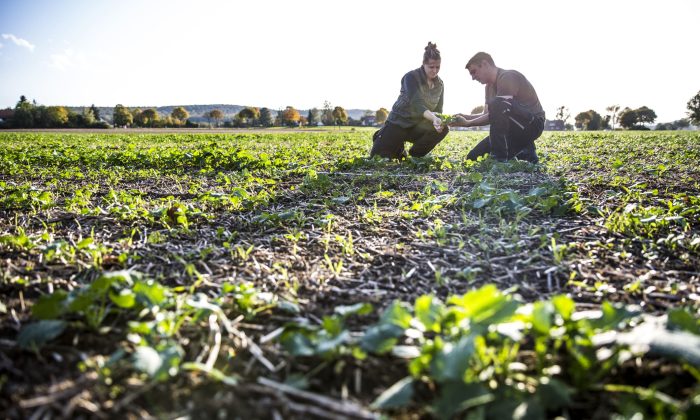Using the latest technology to listen in on beehives could boost productivity and benefit South African beekeeping.
| International Consortium | 200 in-hive sensors installed |
| 43 project participants | Commercial expansion |
South African beekeeping contributes significantly to the economy through honey production, pollination services, and the enhancement of natural capital. However, challenges remain including productivity issues, biodiversity depletion, attracting new participants to the sector and subpar pollination.
Sensor technologies are being explored to overcome these challenges, by implementing in-hive sensor technology to deliver real-time decision support on optimal behaviours and hive conditions.
The Foreign Commonwealth & Development Office (FCDO)’s funded project “Sensor technologies to improve beekeeping in South Africa” was a collaborative project with the UK Agri-Tech Centre, pollination management technology company AgriSound and CropImpi, a South-Africa-based R&D organisation. This pilot was supported by the Frontier Tech Hub, an initiative funded by UK Aid from the FCDO, working closely with the Science and Innovation Network team in South Africa.
The Challenge
Beekeeper numbers in South Africa are declining due to retirement, and the sector is failing to attract new entrants due to poor training infrastructure, government support and access to capital to begin a commercial beekeeping operation.
Agriculture and horticulture are important revenue-generating activities in South Africa, and to maximise productivity, many farmers and growers rely on using mobile apiaries to provide vital pollination services to boosts crop yield and quality. Therefore, suboptimal pollination presents a major threat to biodiversity, food production and lucrative international exports.
Horticulture is an important revenue-generating activity in South Africa, and to maximise productivity, many orchards rely on using mobile apiaries to provide vital pollination services to boosts crop yield and quality. Therefore, suboptimal pollination presents a major threat to biodiversity, food production and lucrative international fruit exports.
This project was designed around adapting sensor technology, which has already been successfully deployed in Europe, for South African beekeepers. The premise was to help improve beekeeping practices and hive productivity, as well as to provide a viable income generating opportunity for underserved groups who could enter the market as novice beekeepers, with the support of the technology.
The Innovation
AgriSound’s small, wireless in-hive sensors are designed to provide users with insights into the status of their bee colony including a microphone for capturing hive sounds. Advanced sound analysis algorithms detect changes within colonies (e.g., swarming, stress, or activity) and alert beekeepers for corrective actions.
The AgriSound kit includes temperature, humidity, and light sensors providing insights into hive metrics like internal temperature (indicating queen health), humidity (disease risk), and unauthorised hive openings.
Key project goals were as follows:
- Adapt and deploy in-hive sensor technology to South African beekeepers including comprehensive training.
- Test the solution across different geographies and demographics, collect user data and optimise target market.
- Validate the technology and evaluate productivity of the sensor and the efficiency data collected from deployed devices.
- Learn what a longer-term business model for rolling out the technology across South Africa would need to consist of.
Participant beekeepers in this project represented different backgrounds, experience, geographical locations and beekeeping sectors, with an additional focus on under-represented groups.
The Solution
To address the project goals, sensor devices were deployed in two key locations representing diverse geographies and different species of bees: KwaZulu Natal and Western Cape Province. Data was gathered from our 25 participant beekeepers in KwaZulu Natal and 18 participant beekeepers in the Western Cape, alongside the 200 deployed devices.
Once devices were deployed, data was collected demonstrating functionality in areas with good signal and high humidity.
Spectral analysis of recordings from bees confirmed algorithm reliability with minor frequency differences. Feedback questionnaires and interviews were conducted to gather data from all participants.
Findings indicated the following:
- 43% of participants took corrective actions thanks to the in-hive device usage.
- 47% of participants reduced their time spent monitoring hives.
- 97% of participants found the training helpful.
- 57% of participants learnt more about beekeeping as a result of using the technology.
- 70% of participants valued the technology.
- 71% said they were willing to pay for the technology.
Numerous events were held in both the Western Cape and KwaZulu Natal provinces. These events aimed to showcase the technology and gather feedback from industry stakeholders, potential buyers, and users to refine the business case for the solution in South Africa.
Additionally, a workshop was conducted as a strategic tool to build up a business case and to define the value proposition of the in-hive devices where target markets were defined.
Next Steps
Having demonstrated a technical proof of concept, next steps for this solution would need to focus on scaling the solution in the South African market. There is an opportunity to refine a product package (hardware plus support services) and a pricing strategy which can respond to the needs of the most promising customer segments.
The technology has scope for further functionality and an offer of support into the current solution around analytics and action prompts to enable users to extract greater value from the platform.
Further Reading



